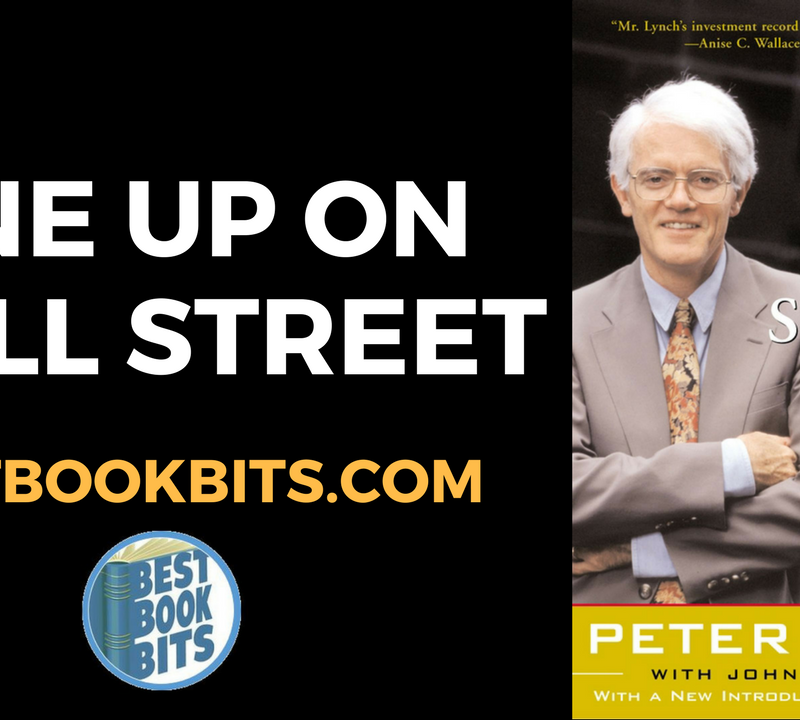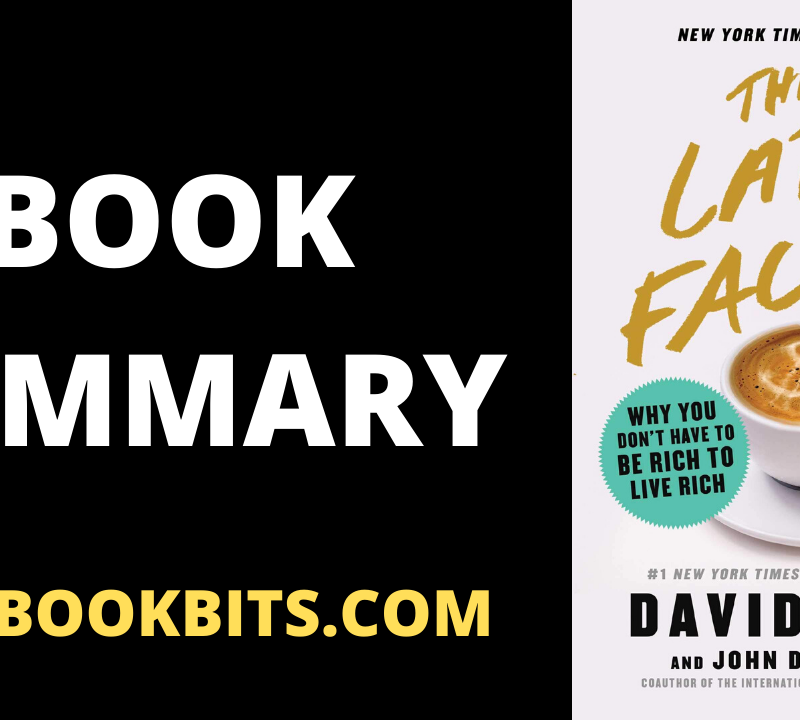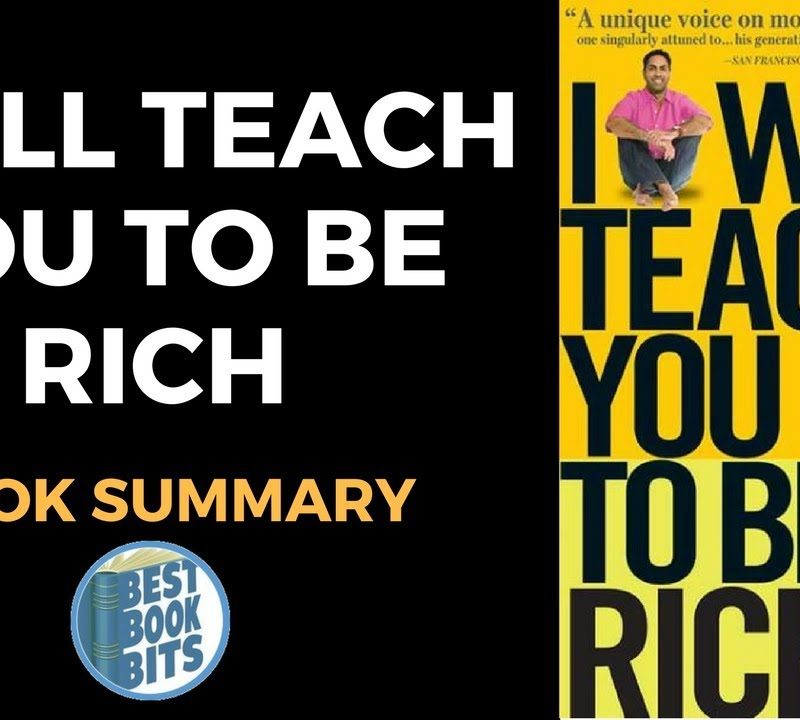♣ CLICK THIS TO STOP TRYING TO ACHIEVE YOUR GOALS BY YOURSELF AND BE COACHED TODAY HERE
♥ CLICK THIS TO DOWNLOAD THIS FREE PDF SUMMARY HERE
♦ CLICK THESE FOR THE FOLLOWING Book | Summaries | Course
YouTube |Spotify | Instagram | Facebook | Newsletter | Website
How to Be Rich by Paul Getty
There are plenty of books on making money by men who haven’t made much. But if J. Paul Getty, who Fortune magazine called `the richest man in the world, ` doesn’t know how, who does? Here the billionaire businessman discloses the secrets of his success – and provided a blueprint for those who want to follow in his footsteps. And he goes beyond the matter of making money to the question of what to do with it.
This Summary Will Help You Learn
- The principles John Getty used to become a billionaire;
- What ten rules he used to build a profitable business; and
- How to be a sound leader and executive.
Take-Aways
- In 1915, Getty bought his first oil well. Then he sold its lease for $15,000.
- He, along with his father create the Getty Oil Company. This was the year 1916. Getty got 30% stock.
- Getty became a millionaire by the age of 24. And he was ready to retire that time.
- Fortune magazine named him “The Richest Person in the US” in 1957. By then he was a billionaire.
- As per Getty, true richness is lasting and helps society.
- He never had issues with labor unions. Because he knew the rights to collective bargaining, he thought that unions help increase living standards.
- Getty found that executives are mainly worried about keeping their jobs. They don’t focus on the amount of work they do.
- Every month he got at least 3,000 letters. Some of these asked for jobs, some requested money, while some were marriage proposals.
- People are having a “millionaire mindset” are knowledgeable, smart and intelligent.
- Great executives are creative, loyal, efficient and problem solvers.
Building the Business
John Getty first found oil in Oklahoma in the year 1916. He was very excited about the likely strike. Hence, John went to Tulsa to wait for any updates. He didn’t want his excitement to make him a barrier for the drilling staff. Phones were not present at that time. Hence, he had to wait for his friend to come up with the news by train. Getty’s first well was giving 30 barrels of oil per hour. Thus, his entry into the oil business was an instant hit. His father, also a lawyer, was into the oil business during 1903. He had a skill of discovering oil. He found oil in 42 wells out of the 43 he drilled. His son worked in these fields for two years. Later in 1914 he also came into the oil business full-time.
In 1915, junior Getty made a partnership with his dad. As per this arrangement, junior Getty search for the oil. And, in return, he got 30% of profits. Later, when they created their company, he got 30% of the stock. He continued to search for oil and worked in oil fields as a geologist. Besides, he also worked as a roustabout and an expert in explosives. Junior Getty bought and sold leases. He even went through scientific reports. But, as per him, his success for sheer luck.
The Young Millionaire
Getty became a millionaire by age 24. He enjoyed his life as a young, carefree millionaire in LA during WW1. He wished to retire. But, his parents tried to convince him to stay productive. This was because many people’s lives depended on the company. Hence, in 1919, he again entered the oil business. This time he started drilling in South California. He worked with his crew, motivating them. But, due to the Depression, the firm’s stock fell too much. In 1930, after his father’s death, Getty started controlling the estate. He also ran the oil company side by side and searched for oil. Getty began buying big oil firms in South California. In 1932, he purchased the Tide Water Associated Oil Company. This was not a friendly merger and hence took 20 years to finish.
Getty was the head of the Mission Corporation in the late 1930s. He bought the Hotel Pierre for $2.3mn. Besides, he also bought a hotel in Mexico. Getty even wanted to enlist for WW2. But, he was too old for that. He learned that his aircraft firm was key to the war effort. Hence, he started to manage the operations. He increased production and stayed at the factory until the war got over. This was the time when he expanded in the Middle East for the oil business. His oil field in Saudi Arabia produced 13mn barrels. By 1954, he had his fleet of oil tankers.
Getty’s Lessons about Making a Million
Ordinary people can also become rich. All they need is enough desire, energy and creativity. People who cry over lack of business prospects are just making excuses. Their reasons vary from high taxes, unfair competition through to high-cost of labor. But, if you pay your staff more, they can purchase more. Plus, no business ever ended only due to high taxes. Besides, if you face high competition, use it to your advantage. Rather than taking such steps, many people give up before even starting. It’s because fear and defeat prevent them from seeing opportunities.
Some of the most significant opportunities lie in global trade. Russia and other countries in the earlier Iron Curtain want American goods. US products are a symbol of high living around the world. It’s because they’re a sign of the American way of life. But, import tariffs hurt US firms. Hence, the government must influence other governments to decrease or remove these duties. There’s one more complaint. It’s that American companies can’t fight with the low production costs of other nations. Still, businessmen who are creative find means to reduce costs. Hence, the answer is to find methods to enhance efficiency.
Getty’s Golden Rules to Make Money
- Go into businesses you know and understand.
- Focus on producing enormous amounts of good products/services.
- Be economical first. Then think of making money.
- Don’t ignore new chances of expansion. They can be anywhere. But, check properly and don’t fall prey to the urge to over-expand.
- Delegate jobs in your business. But, always be responsible for overseeing your workers.
- Reduce costs and improve productivity. This should be the same in both good and bad times.
- Take risks. And be ready to use borrowed funds. But, always pay back the loans fast. This will help improve your credit rating.
- Always be on the lookout for new markets and opportunities.
- Take pride in what you do. Keep a flexible service policy and solve consumer issues fast.
- Wealth comes with responsibility. Hence, use your money to help others. These may also include your workers, shareholders.
Luck, Work, and Knowledge
Types of People
A millionaire mindset needs hard-work, knowledge, and focus. People are of four main categories. But, not each one of them has the traits to become wealthy.
- People who don’t want to work for anyone– These people are independent. For them controlling their own lives is more crucial than a pay-check.
- People who want to work for others and share in the profits– This feature is most common in best sales professionals.
- People who are happy to work for others– These people want the safety of a pay-check. But, they don’t have the confidence and drive to work independently. Or even on commission.
- Salaried employees who don’t want to help employers make a profit– Such people don’t do much work. And, they don’t even add value to free-enterprise.
The Millionaire Mindset
This mindset focuses on efficiency, profit-motive and cost awareness. In other words, this means having an eye for detail, while saving and making money. Pushing inefficient people into retirement is sensible. Because keeping them in your firm will be more costly.
♣ CLICK THIS TO STOP TRYING TO ACHIEVE YOUR GOALS BY YOURSELF AND BE COACHED TODAY HERE
♥ CLICK THIS TO DOWNLOAD THIS FREE PDF SUMMARY HERE
♦ CLICK THESE FOR THE FOLLOWING Book | Summaries | Course
YouTube |Spotify | Instagram | Facebook | Newsletter | Website
The Executive Way
Good executives are great at directing the activities of their staff. They’re loyal, productive and can solve issues fast. These people are creative and independent thinkers. They don’t micromanage, follow directions blindly or use too much oversight. Instead, they lead by example. Plus, they can both explain and instruct what is needed. Besides, they’re also accountable for the work of their subordinates. Hence, if it’s good or bad, they take the blame if their supervision was inadequate. Great executives don’t ask others to do things they won’t do themselves. They praise their people publicly. But never lash out at them in front of others.
Getty was an oil-searcher for a long time. Hence, he knew his presence was vital in the oil field. Therefore, he avoided having an office, thereby preventing unwanted costs. But, in contrast, today’s companies have too many unnecessary expenses. Getty was proud to be efficient. His Middle East oil unit just had an admin staff of 50. Besides, his oil tank farm and refinery in Italy only had 15 workers.
Don’t Stress About the Wrong Things
Getty said that many executives are stressed. The reason is not that they worry about the amount of their work. Instead, they emphasize keeping their jobs. As a boss, he saw stressing about job and overwork as a weakness. Hence, he suggested the use of a positive mindset to handle tough employees. He led by example as he was always a hands-on manager. His beliefs were not to push employees to become efficient. Instead, to guide them for the same.
He said that mutual respect and trust are the base for productive communication. It’s because negativity is harmful. When people see that their contributions don’t matter, they disconnect. They may even become aggressive and steal things. And for them, such acts are justified as the firm distanced them. But, when people turn negative, management puts more boundaries. This in turn further distances people.
Facing Challenges
In his labor negotiations, Getty avoids roundabout bargain. He didn’t delegate. Instead, he directly spoke with union leaders. He told directly that their demands were very high. Plus, he showed the company’s reports stating that real state-of-affairs. Getty gave evidence to back his claims. This unarmed union leaders who finally accepted his original offer. When a company’s profits increased in a year, Getty increased wages.
Getty said that labor unions like honesty and straight answers. Once they have the facts, they make sound decisions. Getty knew the rights of the collective bargain. Plus, he praised how unions increased staffs’ living standards. Hence, he never faced issues with unions. These did mean that negotiations were around better working conditions and higher wages. But, for Getty these demands were reasonable. He understood that employees are like consumers. Hence, the more income they had, the better it was for the nation’s economy.
Great managers face tough situations head-on. American business history has many such turnaround stories. Where executives faced adversity, but then revived their firms. Such stories include Ford Motor Corp, Valley National Bank, American Motors and United Fruit Co. In every case, when issues came, managers didn’t run away. Instead, they analyzed the situation and created a plan. And if they wanted more time, they took it. But, they didn’t panic. Plus, some of these firms’ managers also had to make sacrifices. This was important to remain in the fight. But, in the end, they emerged victoriously.
Art and Fan Mail
Getty had a considerable interest in collecting art. Plus, he saw great art as a sound investment. For example, he bought the Ardabil Persian rug. This was one of the two best carpets in the Western world. Getty bought it for $68,000 in 1938. Then, in 1958 Getty gifted it to the LA County Museum of Art. At that time the value of this rug was $1 million.
Getty had five marriages and said that none of his marriage worked. His four sons also joined the oil business. They first worked in the firm’s gas stations changing tires and oils. Getty got around 3,000 letters monthly from strangers. They were mainly requesting money, asking for jobs or marriage proposals. Despite being a billionaire, Getty said that true richness is something different. It comes when people do what they like and follow lasting values. As per him, status seekers were very materialistic. For these people status and financial freedom were the same. But for Getty true wealth was following principles and doing something good for the society.
How to Be Rich Review
In the libraries and shops, there is some books and pamphlets about how to become rich. The ways mentioned in the books are often unrealistic. But the fact is that if J. Paul Getty doesn’t know about how one can become rich, then it is incredible. J. Paul Getty was named as richest man of the world according to Fortune Magazine. Many billionaire people in business wrote books about the secret of getting rich and disclosed secrets of their success. Paul Getty also wrote some critical blueprints in his book that the followers can follow in the footsteps. The matter of facts is the question that was my interest in reading the book. Getty was famous for his wealthy actions in society, and we felt that the books mentioned responsibilities on individuals for a decent character. The fascinating discussion in the book was a positive attitude, and we appreciate the management techniques discussed in the book. We have come across many books for the exciting business, but the most encouraging thing we ever got in books was mentioned by Getty in his book, and these lines were “I was Lucky – Very lucky.”
In the book, we explored the valuable and expert advice of Getty about life. Getty learned a lot about life because he was suffering from childhood. At some time of life, he was gone into depression, and then he struggled to control the estate, and this took 20 years to finish. The significant opportunities in the market are not for everyone so becoming rich depends on the desire, creativity as well as on the energy. In the book, he describes the flexibility in the services. The quote we liked the most was “it was all a supremely thrilling gamble for staggering stakes, and I plunged into the whirl hopefully.”
How to Be Rich Quotes
“I was lucky – very lucky.”
“It was all a supremely thrilling gamble for staggering stakes, and I plunged into the whirl hopefully.”
“For today’s alert, ambitious and able young men, all that glitters truly can be gold.”
“To be truly rich, regardless of his fortune or lack of it, a man must live by his own values.”
“After all, ‘richness’ is at least as much a matter of character, of philosophy, outlook and attitude, as it is of money.”
“I am of the opinion that the brightest horizons of American business are to be found outside the United States in international trade.”
“Business management may be briefly defined as the art of directing human activities so as to carry out a… firm’s policies and achieve its goals.”
“It doesn’t make much difference how much other knowledge or experience an executive possesses; if he is unable to achieve results through people, he is worthless as an executive.”
“It all adds up to this: The worker is not a brute animal or a robot that can only respond to a command. Workers – at all levels – are thinking, feeling human beings.”
“‘The best boss is one who knows the business better than I do, but trusts me – even though he never lets me forget that he’s the boss,’ an old-time rigger once told me.”
“The ‘millionaire mentality’ is not – and in this day and age, cannot be – merely an accumulative mentality.”
“Not even a 180 I.Q. will necessarily make an individual a good businessman or executive.”
“The door to the American Millionaire’s Club is not locked.”
♣ CLICK THIS TO STOP TRYING TO ACHIEVE YOUR GOALS BY YOURSELF AND BE COACHED TODAY HERE
♥ CLICK THIS TO DOWNLOAD THIS FREE PDF SUMMARY HERE
♦ CLICK THESE FOR THE FOLLOWING Book | Summaries | Course
YouTube |Spotify | Instagram | Facebook | Newsletter | Website













